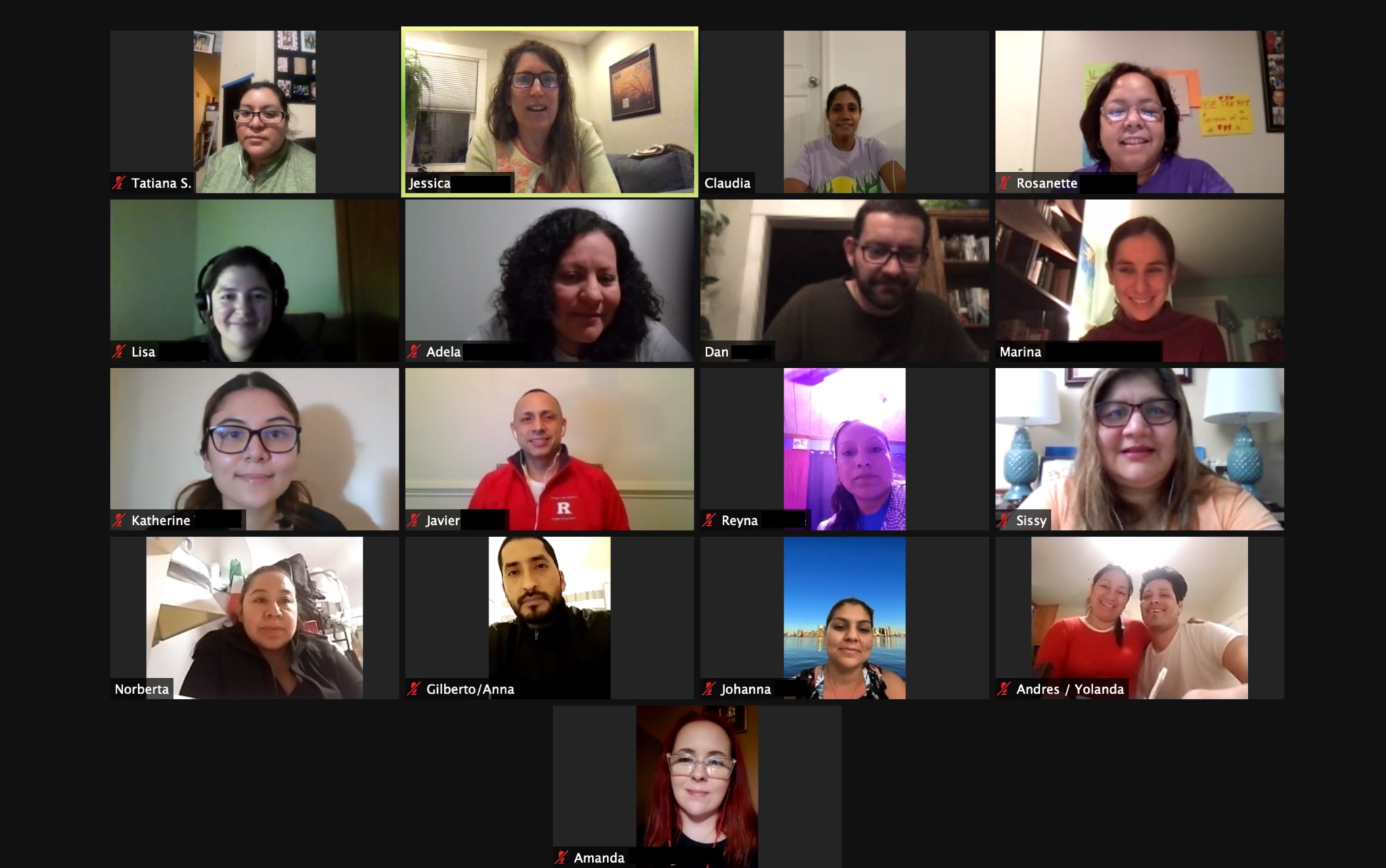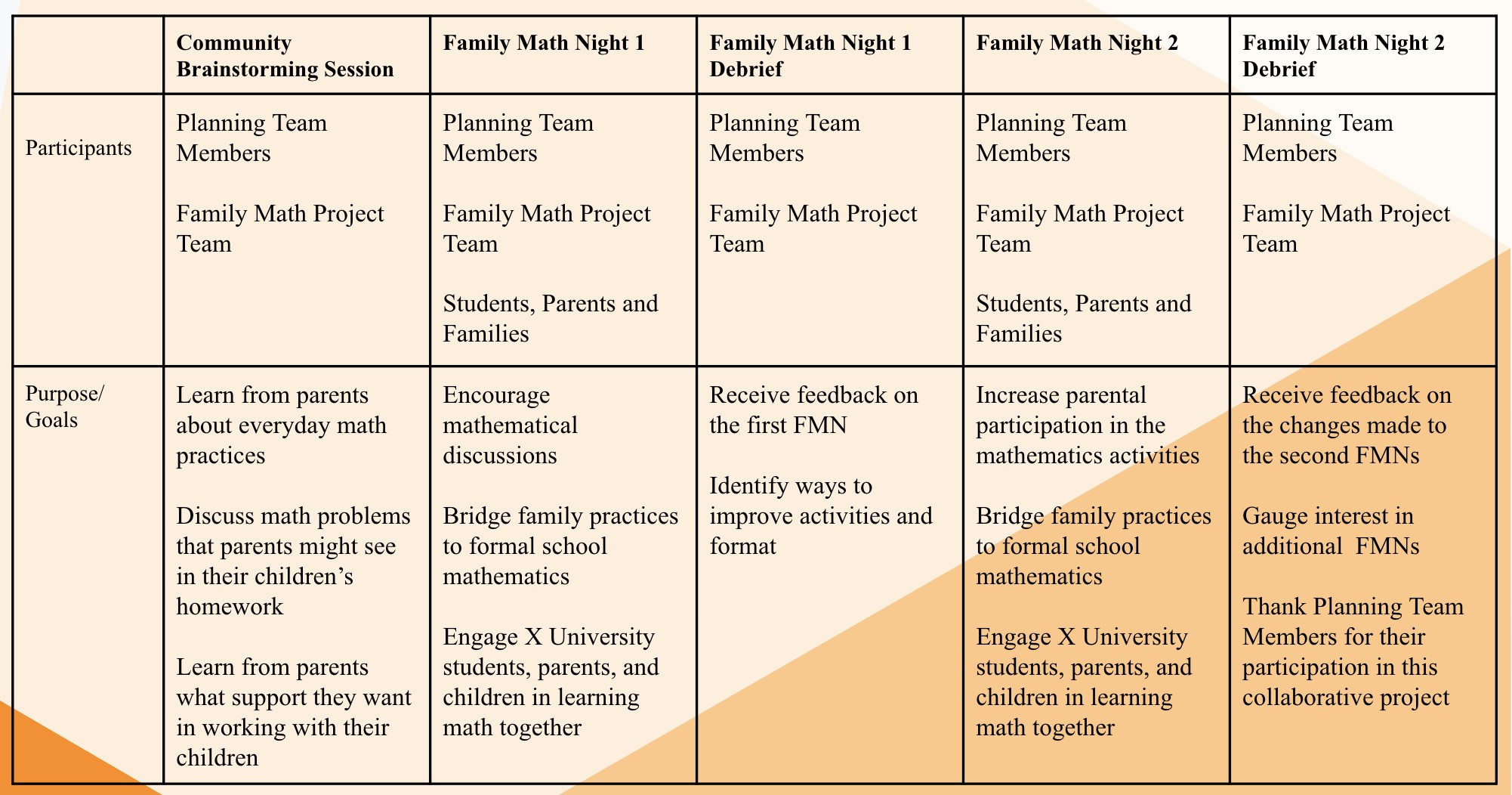Family Math Project
In implementing Family Math Nights through our partnership with New Labor, course participants learn with and from multilingual families about mathematical practices across the home-school continuum. They also investigate collaborative spaces of learning with community and ways to leverage the funds of knowledge and the language repertoires of multilingual families in community-engaged programming and in their classrooms. Finally, in learning how to create partnerships and projects with multilingual communities and community-based organizations, language teachers are equipped with the tools, knowledge, and practices leading to the development of such programs in their own school districts.
Integrated Community-Engaged Programming in Action
Learning in Community: The Family Math Project (7:32)
In collaboration with New Labor and multilingual family members, Family Math Nights engage parents, children, and educators around mathematical practices in school, in the home, and in community. These community-engaged Family Math Night events center the funds of knowledge, ways of knowing, and mathematical practices of multilingual families and community members. In turn, language educators learn with and from multilingual families and together, they create and implement a welcoming and multilingual space of learning that expands mathematical knowledge and practices as well as the linguistic repertoires of participants.
Artifacts
 The Family Math Night Planning Committee includes parents/guardians, community members, Rutgers GSE staff, students, and faculty.
The Family Math Night Planning Committee includes parents/guardians, community members, Rutgers GSE staff, students, and faculty.
For this project, several artifacts were developed alongside course materials. These include:
- Family Math Night activities for K-2
- Session plans and facilitator guides for Family Math Nights involving both children and adults
- Professional development training videos and instructional materials for teacher education courses and community-based organizations
- Information letters and packets for families
- Community-centered videos and projects highlighting the voices, experiences, and mathematical practices of multilingual community. workers.
- Key suggestions for implementation
Family Math Night Project

See also:
- NJTESOL/BE 2022 Conference presentation: Family Math Night: Centering K-5 Families’ Repertoire
- Dominguez, A., Feldman, M., Battery, D., Palpacuer Lee, C. & Hunsdon, J. (2022). Family Math Nights: Centering and Expanding Families’ Mathematical and Language Repertoires. Mathematics Teacher: Learning and Teaching PK-12. DOI: https://doi.org/10.5951/MTLT.2021.0298
Resources
Civil, Marta. Building on Community Knowledge: An Avenue to Equity in Mathematics Education. In Paul Cobb and Na’ilah Suad Nasir, Diversity and Equity in the Classroom. New York: Teachers College Press, 2007.
García, Ofelia, Susanna Ibarra Johnson, and Kate Seltzer. The translanguaging classroom: Leveraging student bilingualism for learning. Philadelphia, Pennsylvania: Caslon, 2017.
Gonzales, Norma, Luis C. Moll, and Cathy Amanti. Funds of knowledge in households, communities and classrooms. Mahwah, N.J.: L. Erlbaum Associates, 2005.
MacDonald, Rita, Cook, Gary, Lors, Sarah, Ramirez, Nora G. (2014). Doing and Talking Mathematics: A Teacher’s Guide to Meaning-Making with English Learners. WI: WIDA Consortium. Retrieved from http://stem4els.wceruw.org/resources.html
New Labor. Small group activity method (SGAM). May 2022. https://newlabor.org/small-group-activity-method-sgam/
